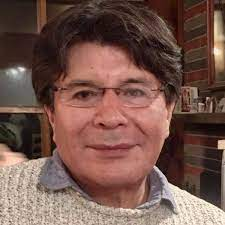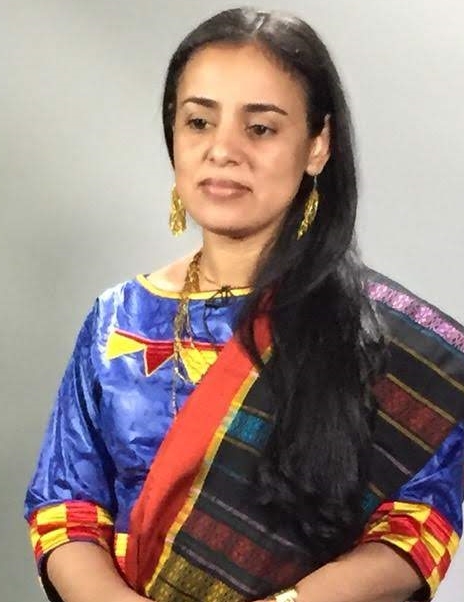Ronald O. Ball Lectureship in Food & Agriculture
Making Waves: Fisheries and Aquaculture in the Face of Extreme Events and Irreversible Climate Impacts
March 11, 2025 | Maple Leaf Room, Lister Hall | 3:30 p.m. - 4:30 p.m. | Reception to follow
Climate-driven phenomena have a profound impact on global fisheries and aquaculture systems. Disruptions such as marine heatwaves, hypoxia and compound events are reshaping aquatic ecosystems with drastic ecological and socioeconomic implications – for both marine life and humankind. Are Earth’s oceans reaching a tipping point? Could this lead to a global food production collapse?
William Cheung, director and professor of the University of British Columbia’s Institute for Oceans and Fisheries will address these impacts including shifts in species distributions, social-ecological impacts and tipping points, threats to food and nutritional security, as well as the challenges they pose to resource management and conservation policies. He will explore low-probability, high-impact events and irreversible changes in marine ecosystems and highlight adaptation strategies and policy responses necessary to build resilience in aquatic food systems as they face increasing risks and uncertainties.
About the Speaker

William Cheung is a Professor and Director of the Institute for the Oceans and Fisheries, the University of British Columbia. He is a Canada Research Chair in Ocean Sustainability and Global Change. He studies the nexus of food-climate-biodiversity in the ocean. He is the Principal Investigator of the Changing Ocean Research Unit at UBC. He serves as Director for a 6-year SSHRC Partnership “Solving the Sustainability Challenges at the Food-Climate-Biodiversity Nexus”. He is an international leader in developing and using scenarios and models to explore solution options and pathways to desirable and sustainable ocean futures. His work addresses policy-relevant research questions and cuts across multiple disciplines, from oceanography to ecology, economics and social sciences. His research ranges from local to global scales.
William has published over 260 peer-reviewed papers and more than 50 book chapters and reports. He is actively involved in international and regional initiatives that bridge science and policy. For instance, he was a Coordinating Lead Author in the Special Report on the Ocean and Cryosphere in the Changing Climate and core author of the Synthesis Report of the Intergovernmental Panel on Climate Change (IPCC), a Lead Author of the Intergovernmental Platform on Biodiversity and Ecosystem Services (IPBES) Global Assessment. He has received multiple international and national awards and recognitions, including the Prix d’Excellence Award of the International Council for the Exploration of the Seas. The E.R. Steacie Memorial Fellowship, the A. G. Huntsman Award for Excellence in the Marine Sciences, and named by Reuter as the top 20 world’s most influential climate scientists. William obtained his BSc and M.Phil. from the University of Hong Kong and completed his PhD in Resource Management and Environmental Studies at the University of British Columbia.
Previous Lectures
Water insecurity and our health: Lessons from the Galapagos - 2023
Clean, safe water is necessary for our health and nutrition. Understanding the pathways through which water insecurity shapes health at the individual and household levels and how it interacts with food is critical for improving physical and mental health now and in the face of environmental and climate change.
Water insecurity remains a challenge globally — whether we look close to home in our rural communities, or we look at the local population in the Galapagos Islands, Ecuador. Our guest speaker, Amanda L. Thompson, examined the impact of water insecurity and the impact of water on health and nutrition against the backdrop of the challenges that local communities in the Galapagos Islands face when the pressures of tourism conflicts with the need for clean water and farmland.
Amanda L. Thompson is a professor and chair in the Department of Anthropology, professor in the Department of Nutrition, Gillings School of Global Public Health, University of North Carolina at Chapel Hill and interim Co-Director of the Center for Galapagos Studies at the University of North Carolina at Chapel Hill.
The case of the “Potato Park” - 2021
The 2021 Ronald O. Ball Lectureship in Food & Agriculture digs into 'The case of the Potato Park' -- illustratrating how indigenous Quechua peoples in Cusco, Peru, have been empowered by the use of their “Ayllu” cosmology to craft an effective "sustainable development" and natural resource (agrobiodiversity) management strategy.
The Potato Park model demonstrates that indigenous peoples can improve their wellbeing (ecosystem, food and health security), uphold their biocultural rights (stewardship, repatriation, intellectual property, land, culture, etc), and achieve economic security (indigenous business models) while maintaining a reverence for and reciprocity with Mother Earth.
This alternative model of development, where nature is respected and the rights and wellbeing of the community is held as paramount, demonstrates that indigenous cosmologies and spiritual values of respect to nature can inform policy in global contexts on critical development and conservation issues.
Speaker and Panelists

Alejandro Argumedo is Director of Programs and Andean Amazon Lead at Swift Foundation. He is a recognized indigenous Quechua leader, chief advisor to the Potato Park and President of the Board of Directors of Asociación ANDES of Cusco, Peru. He also serves in the Board of SeedChange of Ottawa, Canada. Alejandro is the current Coordinator of the International Network of Mountain Indigenous Peoples and a “Champion” of the global initiative “Food for Ever”. Alejandro is an agronomist by training and has served on various expert panels of the UN and other relevant bodies and has consulted for national and international organizations.
 Dr. Mariam Wallet Aboubakrine was raised in Tuareg culture and traditions. She has a multidisciplinary background: in medicine, humanitarian action, and education. Since 1994, she is an active member of Tinhinane - a nomadic women organization in the Sahel region of Africa. For the last decade, in part of her advocacy for Indigenous People's rights, she served two mandates at the United Nations Permanent Forum on Indigenous Issues that she also chaired for two terms. She is currently devoting her time to contribute to the NFRF proposal of the Ărramăt: Biodiversity Conservation and the Health and Well-being of Indigenous Peoples research project as co-principal investigator.
Dr. Mariam Wallet Aboubakrine was raised in Tuareg culture and traditions. She has a multidisciplinary background: in medicine, humanitarian action, and education. Since 1994, she is an active member of Tinhinane - a nomadic women organization in the Sahel region of Africa. For the last decade, in part of her advocacy for Indigenous People's rights, she served two mandates at the United Nations Permanent Forum on Indigenous Issues that she also chaired for two terms. She is currently devoting her time to contribute to the NFRF proposal of the Ărramăt: Biodiversity Conservation and the Health and Well-being of Indigenous Peoples research project as co-principal investigator.

Shane Chartrand - Chef Shane Chartrand is Canada’s best known (and loved) indigenous chefs and advocates. You may have seen him one one of many national Food Network show, he is author of Tawaw: Progressive Indigenous Cuisine (along with food advocate and UAlberta Arts alumna Jennifer Cockrall-King).
Lab-grown Meat: The future of food? - 2018
Presented by Dr. Bill Aimutis, director, North Carolina Food Innovation Lab, NC State University.
The Canadian Food System and Chronic Disease: Cause or Cure - 2015
Presented by Harvey Anderson, professor at the University of Toronto.
In this presentation, Professor Anderson discussed the Canadian food system and its relationship to chronic diseases. The agri-food system has been the major contributor to prevention of disease since the industrial revolution, but it needs to take a new approach to chronic disease. What will that approach be and how will it benefit the health of Canadians?
Inaugural Ronald O Ball Lecture - 2013
Presented by George Kent, Professor Emeritus with U of Hawaii.

About the Ronald O. Ball Lectureship in Food & Agriculture
Ronald O Ball has generously supported this lecture with the Ronald O Ball Lectureship in Food & Agriculture Fund.
This fund allows the University of Alberta to invite an excellent speaker to campus who will appeal to many audiences, faculty members, students, alumni, media, professional agrologists, and the general public. The speaker will be of a stature to attract attention and interest from the University, media, and community, and will highlight current issues in nutrition, food and agriculture.
Questions about the lectureship can be directed to Catherine Field.